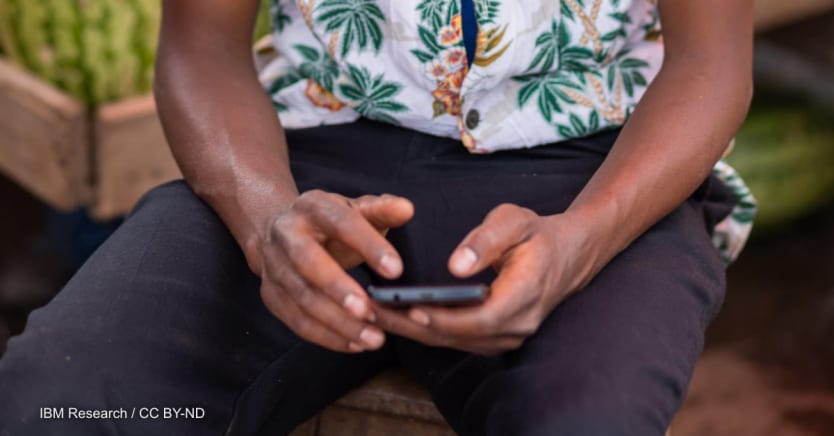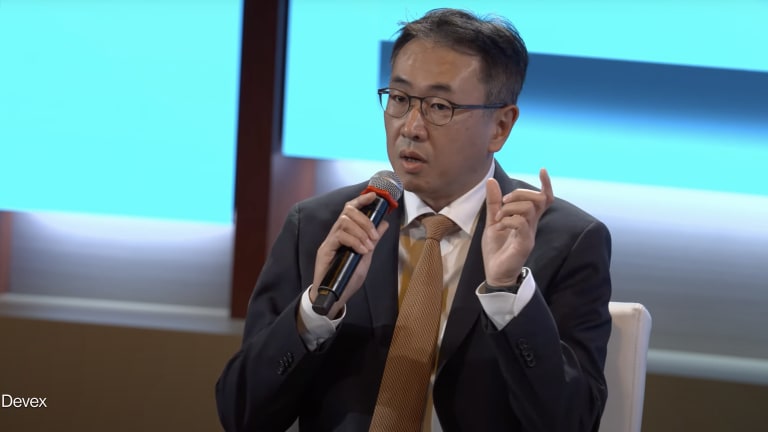
Twiga Foods, a Kenya-based e-commerce platform that sources produce from farmers and delivers it to retailers, was mentioned numerous times during an event on the so-called digital revolution at the World Bank’s Spring Meetings this week.
Digitalization unlocks opportunities for SMEs. But financing lags.
The COVID-19 pandemic has sped up the digital transformation of small and medium enterprises, but challenges have prevented many in sub-Saharan Africa from making this transition.
It’s an example of how technology platforms can create economic opportunities for small businesses, boost supply chain efficiency, and improve access to consumer products, said Nicole Klingen, the World Bank’s acting director for digital development.
The International Finance Corporation, the private sector arm of the World Bank Group, has supported Twiga through multiple investment rounds, and the company says it’s now on track for a $1 billion valuation in the next five years.
The Development Committee, a ministerial-level forum of the World Bank Group and the International Monetary Fund, on Friday discussed a paper on “Digitalization and Development.” Its feedback will inform the World Bank Group’s work on digital technologies.
The World Bank urges its client countries to embrace private sector innovation — modeled by Twiga and other companies that IFC has supported, such as Mobisol, which offers pay-as-you-go solar energy services, and Andela, which trains software developers in Africa and matches them to jobs — and couple it with enabling government policy.
In an email interview, Klingen gave Devex further context on the World Bank’s plans for its work on digitalization.
The “Digitalization and Development” report outlines how the World Bank Group has shifted its approach to so-called digital transformation, broadening its lens from the ICT — or information and communication technologies — sector.
“World Bank projects undertake a holistic approach to supporting the broader digital economy of a country,” Klingen said.
The World Bank’s digitalization strategy has previously focused on telecom infrastructure and services. But initiatives now cover a wider range of sectors, said Klingen, whose team designs investment and technical assistance programs to improve broadband access and use of digital technologies. The World Bank supports areas such as digital skills development, e-commerce, digital identification, and cybersecurity.
5 ways to ensure the digital future doesn't leave people behind
Cina Lawson, Togo’s minister of digital economy and transformation, and other leaders offer ways to ensure the digital future doesn’t leave people behind.
As an example, Klingen mentioned the new Digital Acceleration Project, which was approved late last year. The project is providing $100 million from the International Development Association’s “Scale-Up Window” to support the Rwandan government’s digital transformation efforts.
The World Bank is currently determining its role in “connecting the unconnected,” as it says the global gap in digital access increasingly has less to do with network coverage and more to do with the affordability of services and access to devices.
“The World Bank is developing research to understand the drivers behind smartphone affordability and usage for the lowest income groups in developing countries where there is coverage, but not usage,” Klingen said. “The findings of these activities will shed light on the effectiveness of smartphone financing schemes for low-income users and how private sector support can be crowded in to support them.”
The “Digitalization and Development” report also says the World Bank Group links low- and middle-income countries undertaking reforms on the same digital development issues.
The main topics of interest “include national AI [artificial intelligence] policies, digital ID, cybersecurity, data protection and privacy, and government cloud migration options and policies,” Klingen said.








